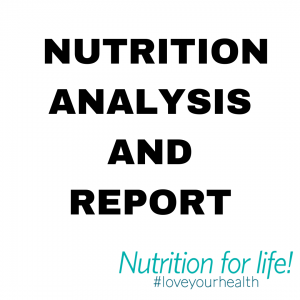Omega-3 fatty acids have various essential benefits for our body, its metabolism and brain health.
At Nutrition for Life Healthcare we work closely with our individual clients to help them improve the quality of their nutrition. Ultimately we want to guide our clients into understanding how certain nutrients in food will optimally help their health and Omega-3 fatty acids certainly play a key role in this process.
What are Omega-3’s and where can we find them in our food choices?
Omega-3 fatty acids are (broadly speaking) found in foods, such as fish and flaxseed, and in dietary supplements, such as fish oil.
The three main omega-3 fatty acids are alpha-linolenic acid (ALA), eicosapentaenoic acid (EPA), and docosahexaenoic acid (DHA). ALA is found mainly in plant oils such as flaxseed, soybean, and canola oils. DHA and EPA are found in fish and other seafood.
ALA is an essential fatty acid, meaning that your body can’t make it, so you must get it from the foods and beverages you consume. Your body can convert some ALA into EPA and then to DHA, but only in very small amounts. Therefore, getting EPA and DHA from foods (and dietary supplements if you take them) is the only practical way to increase levels of these omega-3 fatty acids in your body and quite frankly Omega-3’s from fish is what we would consider, optimal.
OMEGA-3 for Cell Health!
Omega-3s are important components of the membranes that surround each cell in your body. DHA levels are especially high in retina (eye), brain, and sperm cells. Omega-3s also provide calories to give your body energy and have many functions in your heart, blood vessels, lungs, immune system, and endocrine system (the network of hormone-producing glands).
OMEGA-3 for flighting inflammation!
Omega-3 fatty acids are a type of unsaturated fatty acid that can help to reduce inflammation throughout the body. Inflammation in the body can damage your blood vessels and lead to heart disease and strokes and many of our clients have presented with risk factors to these, therefore helping them understand the importance of nutrients such as Omega-3’s is definitely a strategy we like ‘at risk’ clients to take on board.
Omega-3 fatty acids may benefit heart health by:
- Decreasing triglycerides
- Lowering blood pressure slightly
- Reducing blood clotting
- Decreasing your risk of strokes and heart failure risk
- Reducing irregular heartbeats
Ok so with all the above covering off what Omega-3’s are and some benefits in consumption of them, many people we see in our clinic present with Omega-3 deficiency. Here are some things that can indicate when a client may need some omega-3 intervention:
Key signs of omega 3 deficiency (one of more are very common for us to identify)
- Problems with skin, hair, and nails
- Fatigue and trouble sleeping
- Deficits in concentration and attentiveness
- Joint pain and leg cramps
- Allergy symptoms
- Excessive ear wax
- Cardiovascular concerns
- Difficult menstrual cycles for women
In our clinic practice we can undertake a number of analysis measures to determine whether a client will benefit from increased omega-3 dietary and supplement intervention depending on the results of our findings.
RECOMMENDED DAILY INTAKE
The recommend daily intake just to maintain adequate levels of omega-3 is advised as a minimum to be of 250–500 mg combined EPA and DHA each day for healthy adults. Of course when a deficiency is a play, catch up is required. We encourage people to speak to a trained professional when need to rectify a omega deficiency and get their daily levels right.
Supplementation Tip
It’s important to make sure your supplement contains enough eicosapentaenoic acid (EPA) and docosahexaenoic acid (DHA). These are the most useful types of omega-3 fats, and they are found in fatty fish and algae.
We are fortunate enough to have both nutrition and supplement strategies we can suggest and to be able to lead our clients to quality clinically tested options.
Bottom Line on Omega-3’s
So many health markers relate to sufficient omega-3 intake. Whilst it is common for us to note a deficiency in this nutrient among a majority of our new clients, it is something that can quite easily be rectified with nutrition and possibly supplement intervention. With the list of symptoms being quite broad, often a client will notice significant improvements with their hair, skin and nails and reduced joint pain quite early into an omega-3 intervention. For others, the improvements can take 6-12 months.
Suggested Omega-3 Recipes to get you inspired!
Olive & Fish One Pan Bake – See Recipe Here
White Fish Casserole – See Recipe Here
Broccoli & Smoked Salmon Salad – See Recipe Here
Undertake a Nutrition Analysis to see if you are lacking in certain Omega Nutrients? See Here
Discover NUTRIENT DENSE meal options to help cover your nutrition needs in our meal-plan range – here
Thank you for reading our latest blog. If you would like to keep learning more our other blogs are – here –. Should this blog have made you think further about some nutrition help you need please reach out to our clinic, – here – are our contact details.








